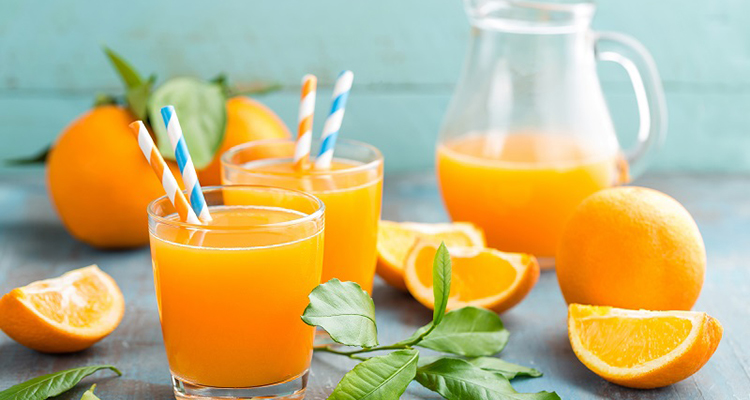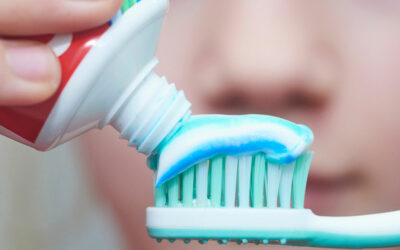You take time to brush your teeth, floss regularly, and consistently visit the dentist. Oral health is an important aspect of overall health, making it imperative to take good care of your teeth. But have you considered the impact food has on oral health?
Teeth need certain nutrients to thrive. For example, foods with ample amounts of calcium, phosphorous, and vitamins D and A are highly beneficial in strengthening and protecting teeth.
However, many beverages and foods promote cavities and plaque, a sticky film caused by bacteria that can lead to gum disease and poor oral health.
In this article, we’ll look closely at the foods to avoid to prevent damage to the teeth and support good oral health.
The Worst Foods for Teeth
High-Sugar Foods
Sugar is bad for teeth because it is a food source for cavity-causing bacteria in the mouth. Cavities are a leading cause of chewing problems, pain, and tooth abscesses.
Plaque-forming bacteria utilise sugar to synthesize acids that cause cavities and deplete enamel. In addition to attacking enamel, the sugar and acid in various foods and beverages can irritate exposed nerves, aggravating tooth sensitivity.
Foods and drinks that contain high amounts of sugar include:
- Sports drinks (sports drinks can contain up to 13 teaspoons of sugar in one drink)
- Energy drinks
- Dried fruit
- Cereals
- Jams
- Pastries
- Pies and cakes
- Sweetened yoghurts
- Lollies and candies
- Cookies
- Desserts
Although there are many health benefits of fruit, its high sugar content can be detrimental to teeth.
In particular, smoothies pose a danger to teeth because they contain a significant level of acid. People often consume smoothies over a prolonged period, maximising contact with the teeth. Fruit juices, even those labelled 100% fruit juice, also contain high levels of sugar which can damage teeth.
While it is almost impossible to eliminate sugars from the diet, reducing sugar intake as much as possible can help prevent cavities and plaque.
Acidic Foods
Foods that contain acid are detrimental to the integrity of teeth. Acidic foods erode enamel, leading to cavities and tooth decay. Additionally, acidic foods contribute to demineralisation, which also contributes to tooth sensitivity.
Examples of acidic foods and beverages that erode teeth enamel include:
- Oranges and orange juice
- Limes and lime juice
- Grapefruit and grapefruit juice
- Lemons and lemon juice
- Pickles
- Tomatoes
- Fruit juices
- Cranberries
Citrus fruits are particularly acidic and can lead to irreparable damage to the enamel. Studies have found that grapefruit and lemon juice are the leading causes of enamel destruction. Lemon juice was found to decrease the sturdiness of enamel by 84%.
It is recommended to ensure that citrus drinks make as little contact with the teeth as possible by rinsing teeth with water immediately after consuming such drinks. Also, one should avoid brushing teeth immediately after drinking acidic drinks such as lemon water.
Hard Foods
Numerous people adopt bad behaviour such as chewing on hard foods such as ice, poorly popped popcorn, and lollies. Enamel might be the toughest part of the human body, but it has its limits.
Enamel is often unable to withstand regular chewing of hard foods, putting teeth at risk of cracks and fractures. Hard foods also frequently get trapped in the teeth.
After consuming hard foods, especially popcorn, it is advisable to floss to remove any food remnants that may have stuck in the teeth. Failure to remove food stuck between the teeth can lead to plaque buildup and gum disease over the long term.
Sticky Foods
Dentists recommend consuming sticky foods with caution. Sticky foods are risky because they are often high in sugar and stay on teeth for prolonged periods of time.
The stickier the food, the more it can cling to unreachable crevices in the mouth where bacteria can feed on it. For instance, dried fruit offers many health benefits. However, the sticky consistency and high-sugar content in raisins, dates, and prunes make them some of the worst foods for teeth.
Rinse your mouth with water and be sure to brush and floss after consuming sticky foods, such as:
- Toffee
- Lollies
- Taffy
- Raisins
- Figs
- Prunes
- Dried mango
- Dried apricots
- Dates
Soda
Along with its high sugar content, the carbonation in soda is corrosive to teeth. The harmful mix of high acidity and sugar in soda promotes tooth decay, demineralisation, and enamel damage.
If you cannot give up soda, try to avoid sipping it throughout the day to limit the amount of time it is exposed to teeth. Also, try to drink soda during a meal instead of on its own.
Coffee and Wine
Coffee tends to dry out the mouth, leaving it devoid of saliva. Saliva is a crucial fluid in maintaining oral health as it is nature’s way of protecting the teeth. Saliva helps wash away plaque and restore optimal mineral levels in the teeth.
Further, saliva prevents the sticking of food on teeth and repairs tooth decay in its early stage. Regular consumption of coffee could also lead to staining of the teeth. Studies have found that stains resulting from coffee are more resilient than those from tobacco. It is advisable to drink ample amounts of water after consuming coffee.
Wine is another common cause of teeth discolouration. The alcohol content in wine causes dehydration and can lead to dry mouth. Subsequently, saliva flow is limited over time, leading to tooth decay and other infections of the mouth including gum disease.
Red and white wines are highly acidic. White wine is more acidic than red wine, but red wine stains teeth more than white wine.
Highly Pigmented Foods
Highly pigmented foods often lead to severe teeth staining. Even though some highly pigmented foods may be healthy, they tend to leave colour on teeth.
Dentists advise rinsing the mouth with water to reduce the chance of staining after consuming highly pigmented foods, such as:
- Curry
- Beets
- Berries
- Highly coloured drinks (coffee, black tea, red wine, etc.)
- Tomato based sauces
- Sodas
- Soy sauce
Refined Carbohydrates
Refined carbohydrates get converted to sugar quickly, providing a food source for bacteria that contribute to cavities.
Starchy carbs such as crackers, white bread, and potato chips also become mushy and sticky when eaten, causing them to easily get stuck between teeth. The longer this food debris sticks to teeth, the more time it has to turn to sugar and feed bad bacteria.
Tips for Healthy Teeth
Along with avoiding or limiting certain foods to keep your teeth and gums healthy, here are additional tips for good oral health.
- Eat Foods for Healthy Teeth — Certain foods help promote the production of saliva, helping to keep the teeth and gums clean. Saliva has protective properties and also contains trace amounts of minerals that help promote strong, healthy teeth. Some of the best foods for healthy teeth include high-fibre fruits and vegetables, crunchy veggies (celery), cheese, plain yoghurt, milk, and leafy greens.
- Eat Low-Acid Foods — To help reduce the effects of acidic foods and beverages, try including low-acidity foods in your diet. Great low-acid foods include bananas, mangos, eggs, brown rice, whole grains, vegetables, and apples.
- Drink More Water — Water helps support saliva production, rinse away food debris, and support good oral health. You can also opt for fluoridated water to help prevent tooth decay.
- Practice Good Oral Hygiene — Brush your teeth twice a day, floss at least once a day, and see your dentist for regular checkups. There are many benefits of general dental checkups, including catching the early signs of decay, patient education, and gum disease detection.
- Eat Sugary Foods With a Meal — The mouth naturally produces more saliva during meals. Consuming sugary foods or drinks with a meal helps rinse away food pieces and decrease acid production.
- Limit Snacking Between Meals — Dentists recommend limiting how often you snack. This decreases how often food comes into contact with your teeth and allows a chance for enough saliva to be produced. If you do need a snack, opt for a nutritious, teeth-friendly choice such as celery, an apple, or unsweetened yoghurt. You can also ask your dentist about chewing sugarless gum between meals to help increase saliva production.
- Wait to Brush — If you do consume highly acidic foods such as citrus fruits or soda, wait approximately 30 minutes before you brush your teeth.
- Rinse — When possible, rinse your mouth out with water after consuming sugary, acidic, or highly pigmented foods.
- Use a Straw — Using a straw when drinking acidic beverages can help minimise contact with the teeth.
Food choices are a crucial aspect of oral health. Although it may be unrealistic to completely cut out all foods that are bad for teeth, it is important to pay attention to how often you consume hard, sticky, acidic, or high-sugar foods. If you have questions about how diet affects oral health or want to schedule a consultation, please contact us. At 123 Dental, we’re committed to helping you achieve a smile that looks and feels healthy. Using a straw when drinking acidic beverages can help minimise contact with the teeth.








